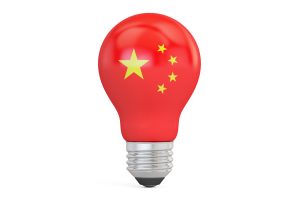In my August article on coal in China, I looked at how an earlier Chinese promise to reduce coal usage has been overridden by practical considerations. Coal usage in China, and therefore coal mining in China, is on the rise.
Since then, this trend to go all-in on coal has been underscored by China’s top leader, Xi Jinping, in his speech on October 16 at the opening to the Chinese Communist Party Congress, a seminal event occurring every five years.
On coal, Xi said:
We will promote clean, low-carbon, and high-efficiency energy use and push forward the clean and low-carbon transition in industry, construction, transportation, and other sectors. We will thoroughly advance the energy revolution. Coal will be used in a cleaner and more efficient way, and greater efforts will be made to explore and develop petroleum and natural gas, discover more untapped reserves, and increase production.
Such political speeches are always full of signals. That singular mention of coal is a signal that underscores that earlier plans to reduce China’s dependence on coal cannot be kept. Nonetheless, it is implied, departure from those plans carry little importance, because coal usage will be “cleaner and more efficient” from here on out.
On energy in general, Xi’s pronouncements on October 16 make broad, bold statements about future practice and policy. But those statements always reserve a caveat.
Of all of Xi’s October 16 policy announcements, one of the most consequential is found in his prescription for energy policy going forward. ”Based on China’s energy and resource endowment,” Xi said, “we will advance initiatives to reach peak carbon emissions in a well-planned and phased way in line with the principle of building the new before discarding the old.”
In that one statement, Xi has underscored that practical considerations of China’s economic and environmental interests will be taken into account before any others. By stating a policy of “building the new before discarding the old,” Xi acknowledged that China will make policy choices based on real-world circumstances, which will take precedence over previously defined commitments that may in truth be difficult to achieve.
And by defining “building the new before discarding the old” as a general principle, its underlying substance holds true across the board, not just with carbon emissions.
This is not to say that in his numerous references to China’s energy policy for the years to come, Xi in any way shies away from bold promises.
In fact, he covers a gamut of energy challenges. ”Planning and development of a system for new energy sources” will occur. Hydropower development will be balanced with ecological conservation, and nuclear power will be developed in an “active, safe, and orderly manner.”
But on climate change, said by many to be an existential threat to humanity, what does Xi promise?
Indeed, not much. In fact, in a 72-page report of enormous consequence to his party, his people, and certainly the outside world, Xi mentions climate change only once, stating that “we will get actively involved in global governance in response to climate change.”
In fact, through the power that China has gained throughout the United Nations, China is already “involved in global governance” on climate change issues, making Xi’s statement disingenuous at best.
Xi also promised to “accelerate the R&D, promotion, and application of advanced energy-saving and carbon emission reduction technologies, encourage green consumption, and promote green and low-carbon ways of production and life,” while at the same time exercising “better control over the amount and intensity of energy consumption, particularly of fossil fuels, and transition gradually toward controlling both the amount and intensity of carbon emissions.”
These do not sound like the words of a man committed to drastic cuts in carbon emissions or an urgent need to control them. In fact, they sound like the statement of a man who feels it unnecessary to make precise promises on such issues.
The world has let China get away with dramatic environmental carnage until now, and in fact has aided and abetted the deterioration of China’s environmental landscape. Many nations have transferred large swaths of their own environmentally damaging practices to China’s shores, which China accepted as a price for its own economic resurgence. Many in China, including, it seems, Xi Jinping, feel that scolding China now for environmental practices in which both parties happily colluded is at least uncalled for, and at most, hypocritical.
In the end, Xi covers many forms of energy in his Party Congress speech, among them petroleum, natural gas, hydropower, and nuclear power – but coal is key. Chinese lists always go from the largest item to the smallest item, from the most important to the least. By putting coal first in his list of energy topics to address in a key section of his speech, Xi signaled his personal support for China’s continued use of coal for the indefinite future, usage which is now at historically record levels. Given that Xi Jinping was given a third term as general secretary of the Chinese Communist Party last month, and is certain to be reanointed president of China in March 2023, his support for coal cements that ancient energy source as a primary piece of China’s energy-producing mix for at least the near future.
As a footnote, neither wind nor solar power were mentioned at all in Xi’s speech. The only reference to wind was that China must be “ready to withstand high winds,” and that the CCP will ensure that “the great ship of socialism with Chinese characteristics catches the wind.”
































